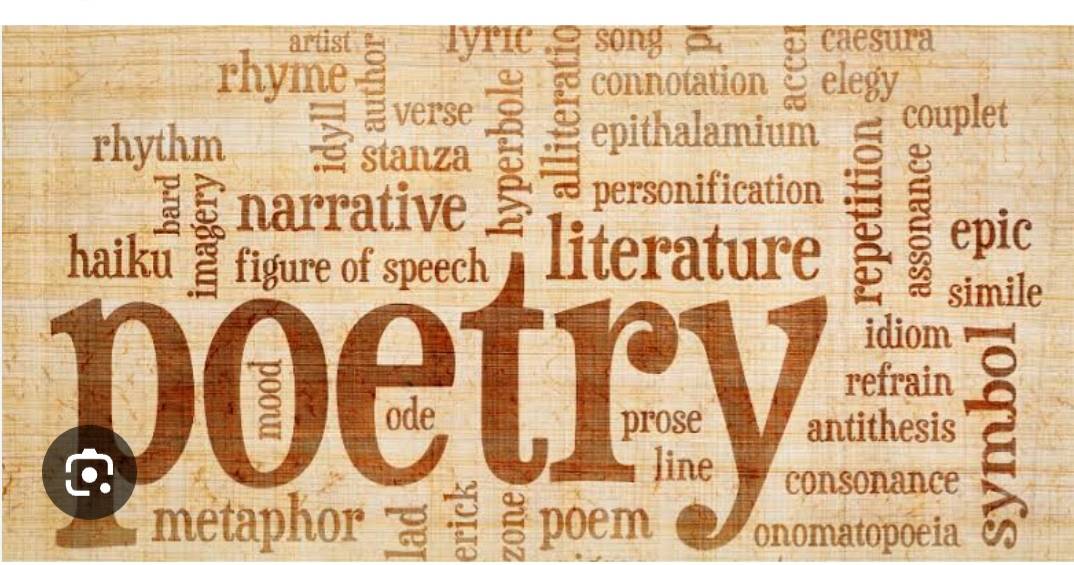The Art of Poetry: An Exploration of Language and Emotion
Introduction Poetry is one of the oldest forms of artistic expression. It has the unique ability to distill complex emotions, ideas, and experiences into carefully crafted words. From the earliest poems written on clay tablets to modern spoken word performances, poetry remains a powerful medium of communication, reflection, and artistic exploration.
What is Poetry? At its core, poetry is a form of writing that emphasizes emotional depth, sound, and rhythm. Unlike prose, which tends to follow straightforward narrative or expository structures, poetry often plays with language and form to evoke feelings, provoke thought, or create imagery. Poems can take many forms, ranging from traditional forms like sonnets and haikus to free verse and experimental pieces.
The Elements of Poetry
Form and Structure: A poem's form might involve specific rules, like rhyme schemes or meter (as in sonnets and limericks), or it could be free verse, which does not follow a fixed structure.
Imagery: Poets use vivid language to create mental pictures that engage the senses. The use of metaphors, similes, and other figurative language is common.
Sound: The sound of poetry, including rhyme, alliteration, and assonance, contributes to its musicality and emotional impact.
Theme: Poems often explore universal themes such as love, death, nature, time, and identity, though poets are not limited to these subjects.
Emotion: At the heart of most poems is an emotional core. Whether it’s joy, sorrow, anger, or hope, poetry captures the essence of the human experience.
Why Do People Write Poetry? Poetry provides a way for writers to express their inner thoughts and emotions in a way that feels more intimate and personal than other forms of writing. It allows for creative freedom and often reflects the complexities of life. Many poets write to make sense of their experiences, to communicate something beyond the surface level, or to connect with others who might feel the same way.
The Power of Poetry One of the remarkable aspects of poetry is its ability to convey complex emotions and ideas in a compact form. A well-written poem can spark profound reflection, empathy, and even action in its readers. For example, works by poets like Emily Dickinson, Langston Hughes, and Pablo Neruda resonate deeply because they tap into shared human experiences in unique ways.
The Evolution of Poetry Poetry has evolved significantly over the centuries. In ancient times, poems were often oral traditions passed down from generation to generation. The Greek epics like the Iliad and Odyssey were sung or recited aloud. Over time, poetry transitioned into written forms with different cultural influences, from Shakespeare’s sonnets to the Beat poets of the mid-20th century.
Today, poetry continues to evolve, with new forms such as slam poetry, spoken word, and digital poetry becoming increasingly popular. Poets are also using social media platforms to reach wider audiences and experiment with new ways of delivering their work.
Famous Poets and Their Contributions Throughout history, numerous poets have made lasting impacts on literature. Some notable figures include:
William Shakespeare: Known for his profound influence on the English language, Shakespeare’s sonnets and plays remain staples of the poetic canon.
Sylvia Plath: Her intense and often dark verse explored themes of identity, depression, and personal trauma.
Maya Angelou: An influential figure in American literature, Angelou’s work centers on the themes of resilience, civil rights, and personal empowerment.
The Role of Poetry Today Poetry continues to thrive in the modern world, resonating with readers through the internet, poetry slams, and social media. It serves as an important tool for social and political commentary, providing a platform for marginalized voices and sparking dialogue on important societal issues. In many ways, poetry is both timeless and evolving, adapting to the changing landscape of language and culture.
Conclusion Poetry is not just a form of art; it is a mirror reflecting the human experience, complex and varied. Whether it’s the beauty of a well-crafted verse or the raw emotion of free verse, poetry offers something for everyone. It is an invitation to explore language, emotions, and the world around us in ways that other forms of writing cannot.




No comments yet
Be the first to share your thoughts!